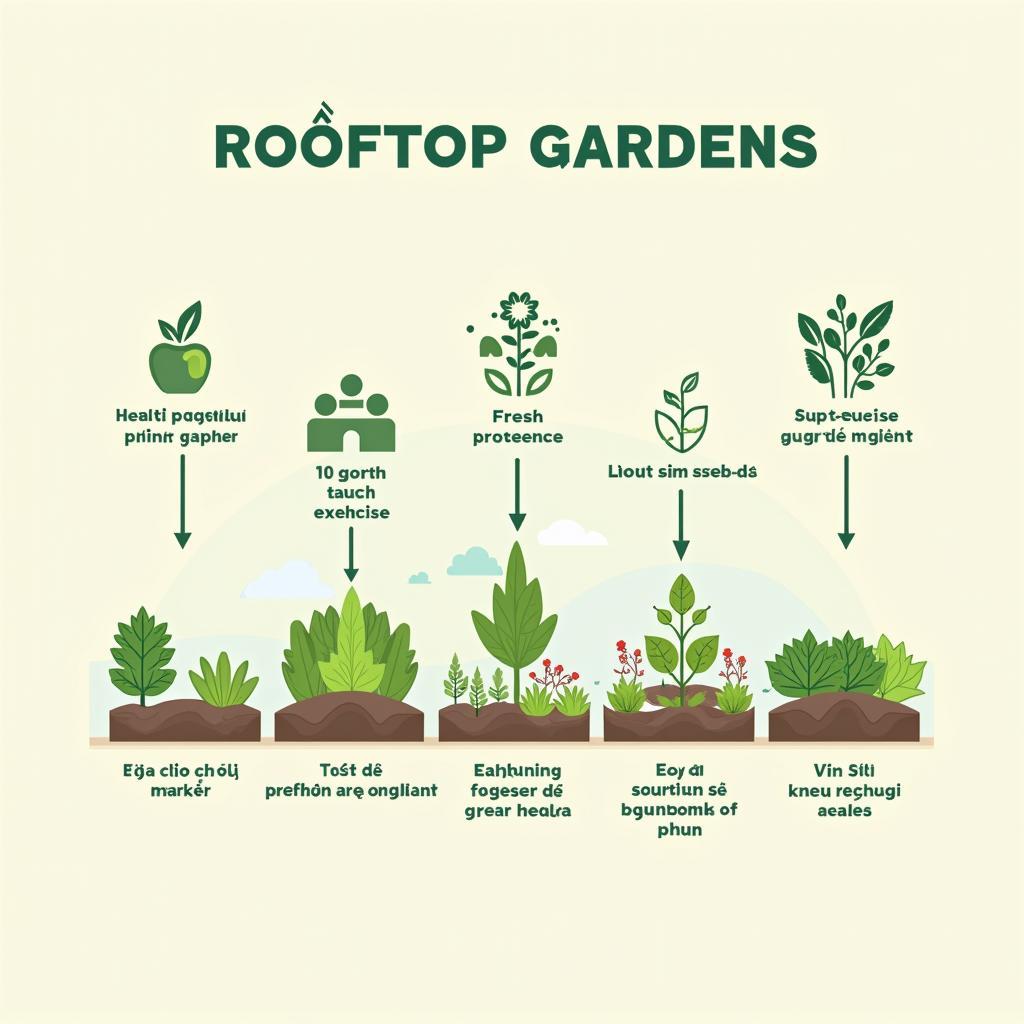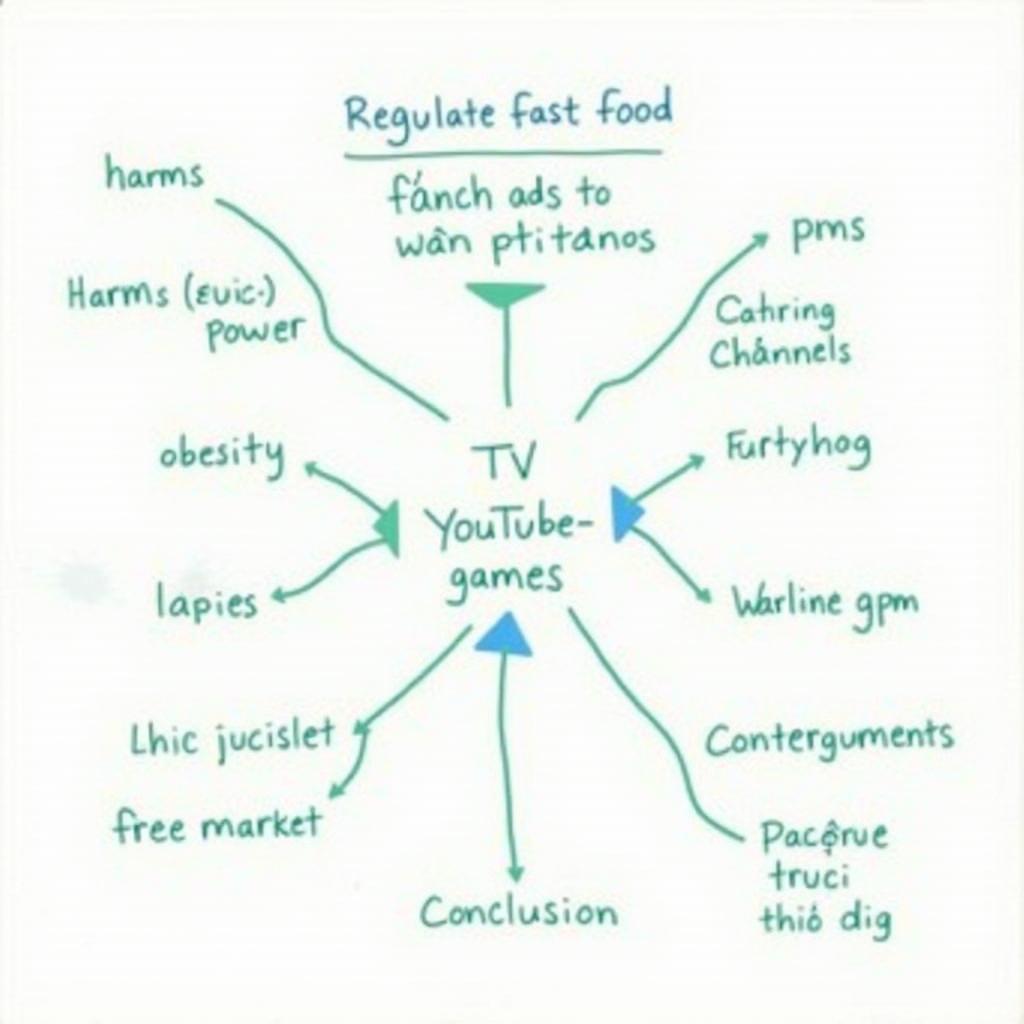Mở bài
Chủ đề “Impact Of Urban Farming On Community Health” đang nổi lên mạnh mẽ trong đề thi IELTS Writing Task 2 các năm gần đây vì giao thoa giữa ba mảng quen thuộc: môi trường, y tế cộng đồng và quy hoạch đô thị. Thí sinh thường gặp những đề yêu cầu bàn luận lợi ích – bất lợi, đánh giá mức độ đồng ý, hoặc so sánh ưu tiên ngân sách cho không gian xanh. Trong bài viết này, bạn sẽ học được: 3 bài mẫu (Band 5-6, 6.5-7, 8-9) dạng chuẩn thi thật, phân tích chấm điểm theo 4 tiêu chí, từ vựng học thuật, cấu trúc câu dễ ăn điểm, checklist quản lý thời gian và chiến lược xử lý đề.
Một số đề tương tự đã xuất hiện hoặc được đăng tải trên các trang uy tín (IELTS Liz – Environment/Health topics; British Council/IDP sample questions):
- “Some people believe more public money should be invested in creating green spaces in cities. To what extent do you agree or disagree?”
- “Buying locally produced food is better for individuals and society. To what extent do you agree or disagree?”
- “In many cities, parks and open spaces are being replaced by housing. Do the benefits of this development outweigh the drawbacks?”
Những đề này đều xoay quanh tác động của thực phẩm địa phương và không gian xanh tới sức khỏe cộng đồng, rất sát với impact of urban farming on community health. Bài viết dưới đây chọn một đề hiện đại và giàu dữ liệu lập luận để bạn luyện bám sát tiêu chí chấm điểm.
[internal_link: IELTS Writing Task 2 chủ đề môi trường]
[internal_link: Cách dùng từ nối học thuật trong bài luận]
1. Đề Writing Part 2
Urban farming is increasingly promoted as a way to improve community health in cities. Do the advantages of this trend outweigh the disadvantages?
Dịch đề: “Nông nghiệp đô thị ngày càng được thúc đẩy như một cách để cải thiện sức khỏe cộng đồng ở các thành phố. Lợi ích của xu hướng này có lớn hơn bất lợi hay không?”
Phân tích đề bài:
- Dạng câu hỏi: Advantages vs Disadvantages + Outweigh (so sánh lợi – hại và kết luận bên nào nặng hơn).
- Từ khóa: “urban farming” (nông nghiệp đô thị: rooftop gardens, community gardens, allotments), “community health” (sức khỏe thể chất, tinh thần, dinh dưỡng, gắn kết xã hội), “outweigh” (phải có lập luận cân – đo – kết luận).
- Lỗi thường gặp:
- Nhầm “urban farming” với “urbanization” (đô thị hóa).
- Chỉ nói môi trường mà quên sức khỏe cộng đồng (diet, mental health, physical activity).
- Thiếu ví dụ cụ thể, thiếu cơ chế nhân – quả (ví dụ: làm sao vườn cộng đồng giảm bệnh mạn tính?).
- Cách tiếp cận chiến lược:
- Dàn ý 2 lợi ích lớn (dinh dưỡng + sức khỏe tinh thần/xã hội) và 1-2 bất lợi thực tế (ô nhiễm đất, chi phí, sản lượng thấp).
- Dùng bằng chứng cơ chế: tăng tiêu thụ rau tươi → cải thiện vi chất; lao động nhẹ ngoài trời → giảm stress; tương tác xã hội → giảm cô lập.
- Chốt luận: lợi ích trội hơn với điều kiện chính sách/kiểm soát rủi ro.
 Nông nghiệp đô thị và tác động đến sức khỏe cộng đồng ở thành phố
Nông nghiệp đô thị và tác động đến sức khỏe cộng đồng ở thành phố
2. Bài mẫu Band 8-9
Bài Band 8-9 cần quan điểm rõ ràng, lập luận có chiều sâu, ví dụ xác đáng, từ vựng học thuật tự nhiên, câu phức đa dạng và liên kết mượt.
Essay (300 words):
In recent years, urban farming has been championed as a public-health intervention rather than merely a lifestyle hobby. In my view, its benefits to community health substantially outweigh its drawbacks, provided that cities adopt sensible safeguards.
First, access to fresh, affordable produce can reshape dietary patterns. Many low-income neighbourhoods are “food deserts,” where calorie-dense but nutrient-poor options dominate. Community gardens shorten supply chains, reduce cost mark-ups, and normalise vegetable-rich diets. As residents participate in planting and harvesting, they acquire practical nutrition literacy, which translates into sustained behaviour change rather than a passing trend. Second, urban gardening embeds light physical activity into daily routines and fosters social cohesion. Digging, watering, and composting are moderate-intensity tasks that help counter sedentary lifestyles. Meanwhile, shared plots function as inclusive social hubs, buffering loneliness and stress—key determinants of chronic disease risk.
Admittedly, there are risks. Soil contamination—especially heavy metals near traffic corridors—can compromise food safety, and poorly managed plots may attract pests. Besides, yields are modest; urban farms cannot feed entire cities. Yet these issues are manageable. With routine soil testing, raised beds, and crop selection that minimises uptake of pollutants, safety improves markedly. Municipal support—tool libraries, water access, and training—offsets maintenance burdens and ensures hygienic practices. Crucially, the aim is not self-sufficiency but health promotion through micro-scale production, education, and social infrastructure.
It is also argued that land would be better used for housing. However, this is a false dichotomy. Roofscapes, schoolyards, and underused verges allow for multi-functional urban design in which green and grey infrastructure coexist. Where space is scarce, pilot schemes and vertical systems can deliver outsized health returns per square metre.
In conclusion, when urban farming is integrated into city policy with basic safeguards, its dietary, psychological, and social dividends decisively outweigh its constraints. Cities seeking healthier communities should cultivate it—not as a panacea, but as a proven, scalable complement to conventional public-health tools.
Phân tích Band điểm
| Tiêu chí | Band | Nhận xét |
|---|---|---|
| Task Response (Hoàn thành yêu cầu) | 8.5 | Trả lời trực diện “outweigh,” nêu rõ lập trường và điều kiện kèm theo. Lập luận có cơ chế nguyên nhân – kết quả (food deserts → dietary change; activity → giảm sedentary) và xử lý phản biện (đất ô nhiễm, đất cho nhà ở). |
| Coherence & Cohesion (Mạch lạc & Liên kết) | 8.0 | Bố cục 4 đoạn hợp lý; câu chủ đề rõ; liên kết logic bằng “First/Second/Admittedly/However/In conclusion.” Một vài cụm chuyển ý nổi bật tạo nhịp mạch lạc. |
| Lexical Resource (Từ vựng) | 8.5 | Từ vựng học thuật tự nhiên: food deserts, supply chains, nutrition literacy, sedentary lifestyles, social hubs, raised beds, vertical systems. Collocation chuẩn, không lạm dụng từ hiếm. |
| Grammatical Range & Accuracy (Ngữ pháp) | 8.0 | Đa dạng cấu trúc: mệnh đề quan hệ, phân từ, điều kiện giả định, mệnh đề nhấn mạnh. Hầu như không lỗi; dấu câu và ngữ điệu học thuật tốt. |
Các yếu tố giúp bài này được chấm điểm cao
- Trả lời đúng trọng tâm “community health” thay vì chỉ nói môi trường.
- Nêu cơ chế cụ thể giúp thuyết phục: soil testing → safety; gardening → activity → health.
- Phản biện luận điểm “đất cho nhà ở” bằng giải pháp không gian đa chức năng.
- Dùng cụm học thuật tự nhiên, collocations bền vững (“nutrition literacy”, “social infrastructure”).
- Sử dụng ví dụ khả thi ở đô thị chật chội: rooftop, schoolyards, vertical systems.
- Mở và kết mạch lạc, nhất quán quan điểm và điều kiện đi kèm (safeguards, municipal support).
3. Bài mẫu Band 6.5-7
Đặc điểm: Hoàn thành nhiệm vụ, lập luận đủ ý nhưng chiều sâu và từ vựng học thuật chưa thật sắc nét; ngữ pháp có lỗi nhỏ; liên kết còn giản đơn.
Essay (265 words):
Urban farming is often promoted as a modern solution to urban health problems. I believe its advantages are more significant than its disadvantages, although some limitations need attention.
To begin with, community gardens make vegetables more available and familiar to city residents. When people grow lettuce, herbs or tomatoes by themselves, they are more likely to eat them, which improves their diet. In addition, working in a garden creates chances for regular light exercise and outdoor time. These activities help people relax after stressful work and reduce screen time. As a result, urban farming can support both physical and mental health and build a sense of community because neighbours meet and share tools and knowledge.
On the other hand, there are real concerns. Some urban soil may contain chemicals from traffic or old industrial sites. If gardens are not checked, produce can be unsafe. It is also true that urban farms do not produce large quantities of food, so they cannot replace supermarkets. However, these problems can be reduced. Cities can test soil, provide raised beds and teach safe gardening. In this way, the health benefits remain while the risks are managed.
In conclusion, although urban farming is not a perfect or complete solution, it can still make city life healthier by improving diet, encouraging activity, and creating social connections. Therefore, I think its benefits outweigh its drawbacks, especially if local authorities give basic support and guidelines.
Phân tích Band điểm
| Tiêu chí | Band | Nhận xét |
|---|---|---|
| Task Response (Hoàn thành yêu cầu) | 7.0 | Có quan điểm rõ, so sánh lợi – hại và kết luận “outweigh.” Ví dụ đủ dùng nhưng thiếu dữ liệu/khung cơ chế sâu. |
| Coherence & Cohesion (Mạch lạc & Liên kết) | 7.0 | Bố cục chuẩn; từ nối cơ bản (“To begin with”, “On the other hand”, “However”). Liên kết nội đoạn còn tuyến tính. |
| Lexical Resource (Từ vựng) | 6.5 | Từ vựng đa dạng vừa phải; thiếu collocations học thuật (ví dụ “nutrition literacy”, “social infrastructure”). Một số lặp từ “urban farming/gardens.” |
| Grammatical Range & Accuracy (Ngữ pháp) | 6.5 | Câu phức có nhưng chưa linh hoạt; lỗi nhỏ về mạo từ và chia thì rải rác; cấu trúc nhấn mạnh/đảo ngữ chưa dùng. |
So sánh với bài Band 8-9
- Bài 8-9 dùng cơ chế “food deserts → cost mark-ups → diet change”, còn bài 6.5-7 chỉ nói chung “grow → eat more”.
- Từ vựng học thuật của bài 8-9 giàu collocations (“sedentary lifestyles”, “raised beds”), trong khi bài 6.5-7 thiên về từ phổ thông.
- Phản biện trong bài 8-9 đi kèm giải pháp và tầm nhìn thiết kế đô thị; bài 6.5-7 dừng ở mức “test soil, provide beds” khá cơ bản.
4. Bài mẫu Band 5-6
Đặc điểm: Trả lời được đề nhưng ý còn rời rạc, ví dụ chung chung, lỗi ngữ pháp và từ vựng thấy rõ, liên kết yếu.
Essay (255 words) với lỗi được làm nổi bật:
Many people say urban farming is good for health, but I think this topic is not so simple. There are benefits, but also problems that are sometimes ignore.
First, growing food in the city can give residents fresh vegetables. This is a good for people who usually eat fast food. Also, gardening makes people move more and talk to each other. These activities can reduce stress and make a friendly community. Besides of that, children can learn where food comes from.
However, there are disadvantages that we cannot avoid to see. In many places, the soil is dirty because of traffic and old factories, so the food may be unsafe if people do not check it. Urban farms also don’t produce many foods, so they cannot feed the whole city. And sometimes these gardens take space that is needed for houses and parking, which is already very limited in big cities.
In my opinion, urban farming is useful, but only if government will make rules and help people to test the soil and organise the gardens. If they do this, the advantages will be bigger than the disadvantages. If not, the projects may fail and waste time and money.
Overall, urban farming has a lot of positive, but we must be careful to manage it properly.
Phân tích Band điểm
| Tiêu chí | Band | Nhận xét |
|---|---|---|
| Task Response (Hoàn thành yêu cầu) | 6.0 | Có nêu lợi – hại và kết luận, nhưng phát triển ý mỏng, ví dụ chung, thiếu dẫn giải cơ chế. |
| Coherence & Cohesion (Mạch lạc & Liên kết) | 5.5 | Liên kết cơ bản, từ nối lặp và chưa chính xác. Một số câu rời rạc, thiếu câu chủ đề mạnh. |
| Lexical Resource (Từ vựng) | 5.5 | Dùng từ đơn giản; nhiều kết hợp từ sai (“a lot of positive”, “a good for”). Lặp từ “urban farming”, “garden”. |
| Grammatical Range & Accuracy (Ngữ pháp) | 5.5 | Lỗi mạo từ, giới từ, chia động từ, danh từ số nhiều; ít câu phức; chấm phẩy chưa tốt. |
Những lỗi sai của bài – phân tích & giải thích
| Lỗi sai | Loại lỗi | Sửa lại | Giải thích |
|---|---|---|---|
| ignore | Chia động từ | ignored | Cần bị động hoặc quá khứ phân từ: “are sometimes ignored”. |
| a good for | Mạo từ/cấu trúc | good for | “good for” không dùng mạo từ “a” trước tính từ. |
| Besides of that | Giới từ | Besides that / In addition | “Besides” không đi với “of” trong cấu trúc này. |
| avoid to see | Cấu trúc V theo sau | avoid seeing | “avoid” + V-ing, không dùng “to V”. |
| don’t produce many foods | Danh từ đếm được | don’t produce much food / large amounts of food | “Food” không đếm được trong nghĩa chung. |
| if government will make | Thì/điều kiện | if the government makes | Mệnh đề “if” loại 1 không dùng “will”; thêm mạo từ “the”. |
| a lot of positive | Danh từ/tính từ | a lot of positives / many advantages | “Positive” cần chuyển thành danh từ số nhiều hoặc dùng “advantages”. |
Cách Cải Thiện Từ Band 6 Lên Band 7
- Nâng tầm từ vựng bằng collocations: replace “good for health” → “beneficial to community health”, “move more” → “increase light physical activity”.
- Tăng chiều sâu bằng cơ chế: “gardening → social contact → lower perceived stress → better mental health”.
- Sửa lỗi nền tảng: mạo từ (a/an/the), giới từ (besides, due to, in addition), chia động từ theo chủ ngữ.
- Dùng câu phức có mệnh đề quan hệ và cụm phân từ để cô đọng ý.
- Thêm một phản biện có giải pháp: soil tests, raised beds, municipal guidelines.
5. Từ vựng quan trọng cần nhớ
| Từ/Cụm từ | Loại từ | Phiên âm | Nghĩa tiếng Việt | Ví dụ (EN) | Collocations |
|---|---|---|---|---|---|
| urban farming | n. | /ˈɜːbən ˈfɑːmɪŋ/ | nông nghiệp đô thị | Urban farming can reshape local diets. | urban farming initiatives, rooftop farming |
| community health | n. | /kəˈmjuːnəti hɛlθ/ | sức khỏe cộng đồng | It improves community health outcomes. | community health outcomes, determinants |
| food desert | n. | /ˈfuːd ˌdɛzət/ | vùng thiếu thực phẩm tươi | Many inner-city areas are food deserts. | urban food deserts, address food deserts |
| nutrition literacy | n. | /njuːˈtrɪʃn ˈlɪtərəsi/ | hiểu biết dinh dưỡng | Gardening builds nutrition literacy. | improve/build/develop nutrition literacy |
| sedentary lifestyle | n. | /ˈsɛdəntəri ˈlaɪfstaɪl/ | lối sống ít vận động | It counters sedentary lifestyles. | combat/counter sedentary lifestyles |
| social cohesion | n. | /ˈsəʊʃl kəʊˈhiːʒn/ | gắn kết xã hội | Gardens strengthen social cohesion. | strengthen/promote social cohesion |
| soil contamination | n. | /sɔɪl kənˌtæmɪˈneɪʃn/ | ô nhiễm đất | Soil contamination is a key risk. | heavy-metal contamination, test for contamination |
| raised bed | n. | /reɪzd bɛd/ | luống trồng nâng | Use raised beds to reduce risk. | build/use/maintain raised beds |
| supply chain | n. | /səˈplaɪ tʃeɪn/ | chuỗi cung ứng | Shorter supply chains lower prices. | shorten/streamline supply chains |
| well-being | n. | /ˌwɛlˈbiːɪŋ/ | hạnh phúc/sức khỏe tổng thể | Gardening enhances mental well-being. | mental/physical well-being |
| cost–benefit | n./adj. | /ˌkɒst ˈbɛnɪfɪt/ | chi phí – lợi ích | A cost–benefit approach is needed. | cost–benefit analysis/ratio |
| public allotment | n. | /ˈpʌblɪk əˈlɒtmənt/ | vườn công cộng chia lô | Public allotments engage residents. | manage public allotments |
| Notwithstanding | conj./prep. | /ˌnɒtwɪθˈstændɪŋ/ | mặc dù, dẫu vậy | Notwithstanding its limits, it helps. | Notwithstanding + noun/clause |
| By the same token | phrase | — | tương tự, vì lý do tương tự | By the same token, yields are limited. | cohesive device |
| to outweigh | v. | /ˌaʊtˈweɪ/ | lớn hơn, vượt trội | Benefits outweigh drawbacks. | clearly/substantially outweigh |
Lưu ý phát âm: luyện nối âm, trọng âm từ ghép (food desert, raised bed) để ghi nhớ chắc.
6. Cấu trúc câu dễ ăn điểm cao
- Câu phức với mệnh đề phụ thuộc
- Công thức: [Mệnh đề phụ thuộc] + [Mệnh đề chính] hoặc ngược lại.
- Ví dụ (Band 8-9): When urban gardens are paired with routine soil testing, their health benefits become far more reliable.
- Vì sao ghi điểm: Thể hiện quan hệ điều kiện/ thời gian rõ ràng, tăng mạch lạc lập luận.
- Ví dụ bổ sung: If cities provide tool libraries, participation will rise. Although yields are modest, the educational impact is profound.
- Lỗi thường gặp: Dùng “because” rồi thêm dấu phẩy sai chỗ; quên chia thì đúng ở mệnh đề phụ.
- Mệnh đề quan hệ không xác định (non-defining relative clause)
- Công thức: Danh từ, which/who + mệnh đề phụ, mệnh đề chính.
- Ví dụ: Urban farming, which is often dismissed as symbolic, can deliver measurable health gains.
- Ghi điểm: Bổ sung thông tin nền học thuật, câu linh hoạt.
- Ví dụ bổ sung: Community gardens, which rely on volunteers, need municipal support. Raised beds, which reduce exposure to contaminants, are cost-effective.
- Lỗi: Thiếu dấu phẩy trước/sau mệnh đề; dùng “that” thay “which” trong non-defining.
- Cụm phân từ
- Công thức: V-ing/V-ed + cụm bổ nghĩa, mệnh đề chính.
- Ví dụ: Reducing supply-chain distance, community plots make produce more affordable.
- Ghi điểm: Cô đọng, nhịp văn tự nhiên.
- Ví dụ bổ sung: Addressed early, contamination risks are manageable. Encouraging participation, cities can scale pilots quickly.
- Lỗi: Lủng chủ ngữ (dangling participle), dùng V-ed sai với chủ động.
- Câu chẻ (Cleft sentences)
- Công thức: It is/was + X + that/who + mệnh đề.
- Ví dụ: It is the social infrastructure that turns gardens into health assets.
- Ghi điểm: Nhấn mạnh trọng tâm, tăng sức thuyết phục.
- Ví dụ bổ sung: It is municipal training that ensures safety. It is community ownership that sustains projects.
- Lỗi: Lạm dụng làm văn nặng nề; nhấn sai trọng tâm.
- Câu điều kiện nâng cao
- Công thức: If/Provided that/As long as + mệnh đề, mệnh đề; Mixed conditionals.
- Ví dụ: Benefits outweigh drawbacks provided that cities adopt sensible safeguards.
- Ghi điểm: Nêu điều kiện chính sách rõ ràng, tính học thuật.
- Ví dụ bổ sung: If soil had been tested earlier, risks would have been lower. As long as funding persists, schemes can scale.
- Lỗi: Dùng “will” trong mệnh đề if; sai thì của điều kiện hỗn hợp.
- Đảo ngữ
- Công thức: Only if/Not until/Never + trợ động từ + S + V.
- Ví dụ: Only when gardens are integrated into policy do they become public-health tools.
- Ghi điểm: Tạo điểm nhấn, đa dạng cấu trúc.
- Ví dụ bổ sung: Not until contamination is addressed can trust be built. Never have cities had such accessible tools.
- Lỗi: Quên đảo trợ động từ; dùng đảo ngữ quá dày.
 Vườn sân thượng và lợi ích sức khỏe cộng đồng trong IELTS Writing Task 2
Vườn sân thượng và lợi ích sức khỏe cộng đồng trong IELTS Writing Task 2
7. Checklist Tự Đánh Giá
- Trước khi viết:
- Xác định dạng đề: agree/disagree; advantages/disadvantages; outweigh.
- Khoanh vùng “community health”: dinh dưỡng, vận động, tinh thần, xã hội.
- Chọn 2 lợi ích mạnh + 1 rủi ro chính + giải pháp khả thi.
- Trong khi viết:
- Mỗi đoạn 1 ý chính + bằng chứng cơ chế + ví dụ.
- Dùng từ nối học thuật hợp lý, tránh lặp.
- Kiểm soát độ dài 260–320 từ tùy mục tiêu.
- Sau khi viết:
- Soát mạo từ a/an/the; số ít/số nhiều; giới từ (due to, in addition).
- Kiểm tra chủ ngữ – vị ngữ; thì; dấu phẩy mệnh đề phụ.
- Thay 3–5 từ phổ thông bằng collocations học thuật.
- Mẹo quản lý thời gian:
- 3 phút phân tích đề + dàn ý; 30 phút viết; 5–7 phút soát lỗi.
- Viết topic sentence trước, ví dụ sau; giữ kết luận 2–3 câu gọn.
Kết bài
Bạn vừa có bộ công cụ đầy đủ để chinh phục IELTS Writing Task 2 về impact of urban farming on community health: 3 bài mẫu theo dải band 5–9, phân tích chấm điểm chi tiết, bảng từ vựng và 6 cấu trúc câu ghi điểm. Hãy luyện viết tối thiểu 3 phiên bản cho cùng một đề, nhờ bạn học hoặc giáo viên phản hồi, rồi sửa và viết lại. Với lịch trình đều đặn 4–6 tuần, bạn có thể nâng một band nếu tập trung vào Task Response (lập luận theo cơ chế) và Lexical Resource (collocations phù hợp).
Hành động ngay: chọn một đề tương tự trong danh sách mở bài, đặt thời gian 40 phút, viết bài, rồi so sánh với bài Band 8-9 để tìm 3 điểm khác biệt lớn và sửa trực tiếp. Chia sẻ bài của bạn trong phần bình luận của lớp học hoặc nhóm học để nhận góp ý. Tham khảo thêm các chủ đề liên quan như [internal_link: từ vựng IELTS chủ đề môi trường] và [internal_link: mẹo viết IELTS Task 2 band 7+]. Khi bạn viết thường xuyên, tác động tích cực sẽ “outweigh” mọi khó khăn ban đầu.


